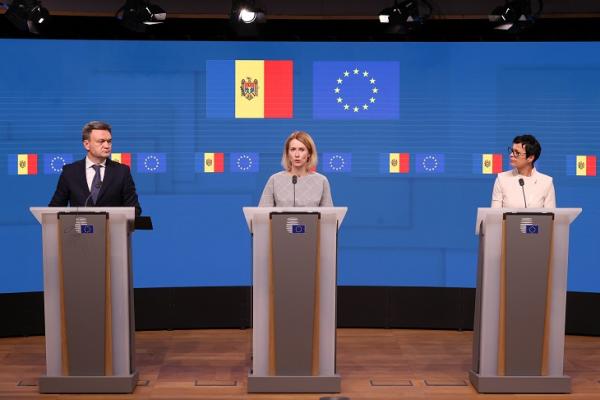The EU is supporting Moldova's energy security through increasing domestic electricity production, participation in the EU common gas purchasing mechanism, boosting renewables and focusing on energy efficiency.
Moreover, since December 2021, the EU has disbursed millions of euro worth of budget support to help support vulnerable families and SMEs facing the rising energy costs. These actions are also aimed at supporting the long-term socio-economic recovery, energy security and energy transition. An additional offer of EUR 60 million has been made for the people of the Transnistrian region after they were left with no heating or electricity following Gazprom’s decision to halt energy supplies in winter 2025.
The EU and the Republic of Moldova have also agreed on a two-year Comprehensive Strategy for Energy Independence and Resilience. This strategy is underpinned by support worth up to EUR 250 million in 2025 alone and includes direct budget support of up to EUR 100 million, conditional on reforms. It will help Moldovan citizens, social institutions such as schools, hospitals and kindergartens, and businesses who are facing steep energy price increases pay their bills.
During the 5thHigh-Level Energy Dialogue on 2 February 2024, Moldova and the EU endorsed a new Joint Moldova-Energy Community and European Commission Roadmap. This roadmap sets out further reforms covering the gas and electricity markets, as well as measures to boost energy efficiency and renewable energy capacity.
In addition to energy security, the EU is helping Moldova counter foreign information manipulation and interference, including disinformation, and enhancing strategic communication through providing technical support to the Moldovan government and capacity building for independent media civil society and youth to address disinformation and to communicate actively on the benefits of EU integration.
The EU is also enhancing Moldova's security through targeted actions guided by the High Level Political and Security Dialogue; expanding cooperation through the EU Partnership Mission to Moldova, the EU-Moldova Support Hub for Internal Security and Border Management, the EU Border Assistance Mission, as well as with European agencies notably Frontex, Europol, Eurojust and CEPOL; strengthening Moldova's defence sector through the European Peace Facility, and its internal security and border management through targeted investments and provision of equipment. Between 2021-2025, the EU has allocated EUR 197 million through the European Peace Facility, enabling the Moldovan Armed Forces to improve their operational effectiveness, accelerate meeting EU standards and interoperability.
Facilitating economic development and connectivity – such as support for SMEs, trade, energy efficiency, human capital development and connectivity – also remains a priority for the EU in Moldova.
Moldova participates in the EU-Ukraine Solidarity Lanes initiative that helps the country ensure secure supply chains and food security. Since 2023, Moldova has benefited from almost EUR 45 million in grants under the Connecting Europe Facility for Transport to improve transport connections between Moldova and Romania. Building on the achievement to reduce roaming prices, the EU is working to bring Roam Like at Home permanently to Moldova by 2026. On 13 May 2024, the Council approved the renewal of the EU’s autonomous trade measures for Moldova – a temporary suspension of import duties and quotas on all imports from Moldova to the EU - which will apply until July 2025.
Finally, the EU is supporting Moldova's reforms through efforts to strengthen administrative capacity, advisory services focusing on challenges arising from the accession process, dedicated training and support programmes, as well as increasing the participation in EU programmes. Moldova currently participates in programmes such as: Horizon Europe, Fiscalis, Customs, LIFE, EU4Health, the Connecting Europe Facility, the Single Market programme, the Union Civil Protection Mechanism (UCPM) Digital Europe and the Employment and Social Innovation (EaSI).
Some of these efforts are set out in the Support Package for the Republic of Moldova presented by President von der Leyen in June 2023, which aims to address the impact of Russia’s war of aggression against Ukraine and bring Moldova closer to the EU. The package was presented in recognition of the challenges Moldova has faced since the start of Russia's war of aggression against Ukraine, such as large numbers of refugees, inflation, threats to its energy supplies, violations of its airspace, as well as a multitude of hybrid attacks, such as disinformation and cyber-attacks.







